Did ‘lack of imagination’ prevent Israel from foreseeing the carnage?
Thus far, the Benjamin Netanyahu government’s only answer to the brutality of last week’s terror attacks by Hamas has been brute force of its own. It will have to do better than that to prevent future surprises.
US Secretary of State Antony Blinken went as far as to compare the Hamas assault with the worst terrorist attack ever on American soil. “If you look at this in proportion to the size of Israel’s population, this is the equivalent of ten 9/11s,” he said on Thursday. Even if that count is somewhat exaggerated, it’s not by much, and the comparison is accurate in more than just the scale of the tragedy.
In the 9/11 Commission Report, which documented the US government’s failures to anticipate the attack, ‘imagination’ was listed as the most significant factor. “The most important failure was one of imagination,” the authors stated. “We do not believe leaders understood the gravity of the threat.”
Likewise, Israeli officials may have committed the same sort of folly in the face of an opponent that has long coveted the destruction of their nation.
While it is true that ‘hindsight is always 20/20,’ and nobody can reasonably prepare for every possibility, tensions between Israelis and Palestinians have been accumulating for many years and the region was long overdue for a volcano-style eruption. The number of extremist attacks by Israeli settlers on Palestinians and their property in the occupied West Bank has increased in recent years, and just in the first half of 2023, the UN registered a record 591 such incidents.
Read more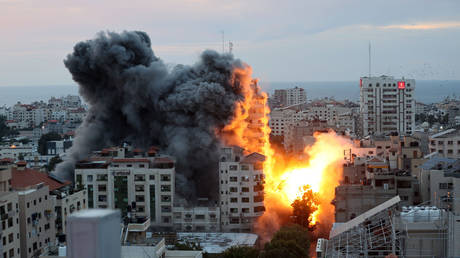 Hamas’ terror attack on Israel was not ‘unprovoked’
Hamas’ terror attack on Israel was not ‘unprovoked’
Meanwhile, Netanyahu’s right-wing, nationalist government, which rejects any negotiations with the Palestinian leadership, has declared its intention to double the number of Israeli settlers in the West Bank to 1 million from the current 500,000 by the year 2050. By any measure, that could be considered a recipe for disaster.
This doesn’t mean, however, that the Palestinians have been innocent of wrongdoing themselves, even before Saturday’s assault. In June, for example, two Palestinian gunmen shot and killed four Israeli civilians, including a 17-year-old boy, near a Jewish settlement in the West Bank. Perhaps it would come as no surprise that the gunmen were members of the armed wing of Hamas, the Islamic militant group that seized control in Gaza in 2007 after emerging victorious in elections one year earlier.
Another significant factor that should have pointed to an inevitable eruption of violence involves the controversy over the Al-Aqsa Mosque complex in Jerusalem, which the Hamas terrorists’ “operation” was named after. This has been a lightning rod for contention among Jews, Christians, and Muslims for many centuries, and is now becoming a real cause for concern. (For historical context, inside the Al-Aqsa complex is the famed Dome of the Rock, an Islamic shrine that was built in 692 AD on the exact spot where Orthodox Jews have high hopes of building the Third Temple as a Jewish place of worship.)
In April, violent clashes erupted between Muslim worshippers and Israeli security forces when several hundred Palestinians barricaded themselves inside the Al-Aqsa Mosque, amid fears that Jews might enter the Temple Mount to perform a ritual sacrifice, despite its prohibition. Eventually, Israeli police raided the mosque in riot gear, injuring 50 people and arresting hundreds.
Read more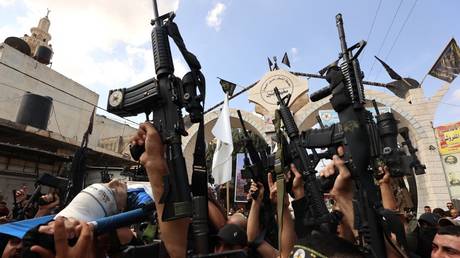 Scott Ritter: Are Hamas fighters using American weapons meant for Ukraine?
Scott Ritter: Are Hamas fighters using American weapons meant for Ukraine?
An anonymous Israeli government official told the Times of Israel that police had gone “too far” in their treatment of the Palestinians, saying that it “legitimized claims that Al-Aqsa is in danger, [and] galvanized Israel’s adversaries.”
All of this points to a serious lack of imagination when it comes to predicting an attack by Hamas. Yet there should have been numerous physical signals requiring no imagination at all landing on the radar of Mossad, the Israeli foreign intelligence agency. With a $3 billion annual budget and 7,000-strong staff, Mossad is the second-largest espionage agency in the West after the CIA. With such massive clout, it is almost impossible to believe that Israeli intelligence has not infiltrated Gaza and even Hamas at least to some degree with its intricate spy network. Thus we must ask: since the Palestinian military operation took lengthy planning among many participants, how did nobody (except for the Egyptians, apparently) catch wind of this attack? While it’s still too early to start pointing fingers, Netanyahu’s Likud government will have some explaining to do on the intelligence front once the smoke clears.
And then there is the situation in Ukraine, which likely led Hamas to believe that Israel would be left on its own as Western governments have been preoccupied with helping Kiev fight the Russians. Much of this preoccupation has involved sending billions of dollars’ worth of weapons and financial aid to Ukraine, to the point where US and NATO supplies have dropped to precipitously low levels. And despite Israel’s declared neutrality over the Ukrainian mess, it seems the conflict has taken a toll on West Jerusalem’s military readiness as well.
Assuming that Hamas leaders read the New York Times, they would have learned back in January that the US “is tapping into a vast but little-known stockpile of American ammunition in Israel to help meet Ukraine’s dire need for artillery shells in the war with Russia.”
The article went on to reveal that the weapons stash “provides arms and ammunition for the Pentagon to use in Middle East conflicts,” as well as allowing Israel to access the supplies “in emergencies.” With more than 1,300 Israelis reportedly already dead and over 3,300 wounded, and Hamas militants still not cleared from Israeli territory, this is certainly a full-fledged emergency.
Read more Mikhail Khodarenok: Israel’s war on Hamas could lead to the end of the Gaza exclave
Mikhail Khodarenok: Israel’s war on Hamas could lead to the end of the Gaza exclave
It seems safe to say that the Hamas attack, besides the symbolism of it beginning on the 50th anniversary of the Yom Kippur War, was also timed to occur when the munitions shortage caused by the conflict in Ukraine would most seriously hamper the IDF’s capability to respond, especially in the event of urban warfare in Gaza. Here was yet another ‘failure of the imagination’ – a real opportunity for a sworn enemy to take advantage of – that the Israelis should have seen on the horizon.
Another thing that should have triggered alarm bells across Israel is the Western hemisphere’s reckless behavior in Ukraine – the pursuit of proxy militaristic adventurism – which sent a dangerous message to militants across the planet that they could wreak havoc upon their enemies without any fear of serious consequences. For all their glaring faults and double standards, the US and its allies help to prevent many of the world’s frozen conflicts from turning into red-hot war zones, as Israel and Gaza has become today.
It’s time for leaders to use their imaginations in order to prevent the next great global catastrophe, which could very well be World War III.

 1 year ago
140
1 year ago
140
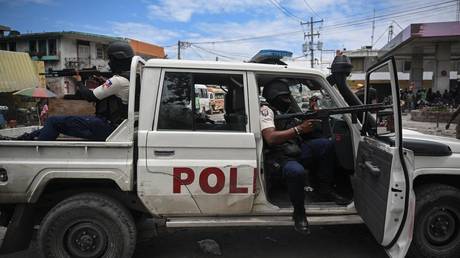
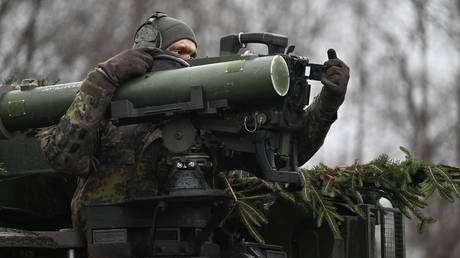
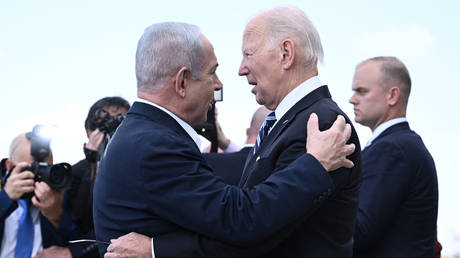
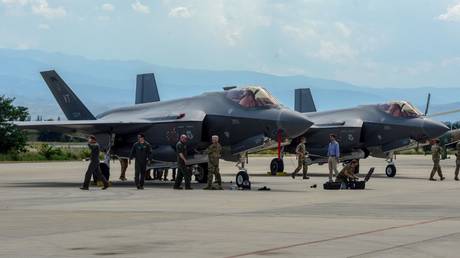

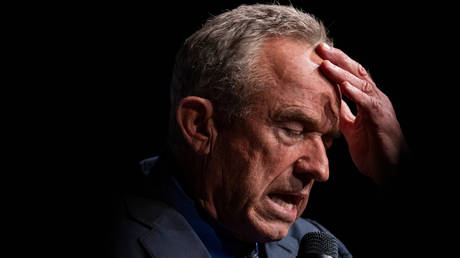
 English (US) ·
English (US) ·